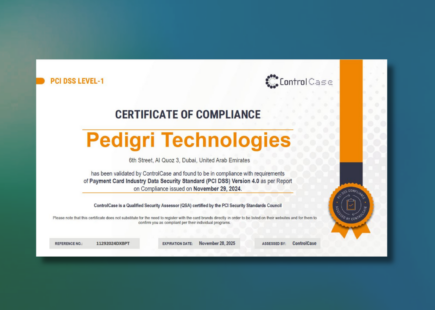The Imperative of Denied or Restricted Party Screening in Supply Chains
01 February, 2024Imagine the supply chain as a complex network of blood vessels in a living organism. Just as the health of an organism depends on the purity of what flows through these vessels, so does the health of a supply chain rest on the integrity of its participants.

Conducting denied or restricted party screenings is a safeguard and a commitment to corporate health and ethical business practice.
The challenge escalates when operating in multiple countries, each with its own regulatory requirements. This complexity can make compliance a challenging task, particularly for companies expanding into unfamiliar countries and markets.
What is Denied or Restricted Party Screening?
Denied or restricted party screening is a process that companies use to ensure they do not engage in business with parties that are listed on sanction lists. These lists are created by international bodies, governments, and trade organizations, and they can include individuals and businesses involved in illegal activities such as terrorism, drug trafficking, arms dealing, and more. If a company knowingly or unknowingly deals with sanctioned parties in certain jurisdictions, it may lead to severe consequences, including penalties and potential business loss.
Why Vigilance is Non-Negotiable
A slip in due diligence can be the domino that topples reputations and revenues, bringing the obvious implications:
- Legal Compliance: Non-compliance with international sanctions can lead to hefty fines and legal repercussions.
- Reputation Management: Associating with a denied or restricted party can ruin a company’s reputation forever. In the era of social media and instant news, such a misstep can become a public relations nightmare overnight.
- Operational Integrity: Ensuring your business dealings are ethical and legal is fundamental to maintaining operational integrity. It’s about doing the right thing – a principle that should be at the heart of any business.
The Landscape of Risk and Regulation
Recent events have cast a spotlight on the importance of stringent screening processes. The geopolitical landscape is shifting almost daily, with increasing tensions and conflicts bringing about more comprehensive and stringent sanctions and changes in regulations.
- Evolving Sanctions: The recent conflicts and diplomatic tensions have led to a rapidly changing sanctions environment. Companies must stay agile and informed to navigate these changes effectively.
- Technological Challenges: With the advent of complex financial technologies and digital currencies, screening has become more challenging. Illicit actors are finding sophisticated ways to bypass traditional detection methods.
- Globalization Risks: As companies expand globally, the risk of inadvertently transacting with a restricted party increases. The complexity of global supply chains can obscure the clarity of business relationships.
Whom to Screen
This is not a surface-level check but a thorough process to ensure that every individual or organization associated with your business conforms to global compliance standards. So, it is important not just to focus on the screening process itself but to know who needs to undergo screening. Below is a list of the significant entities that require careful screening:
- Suppliers, both direct and indirect. This includes manufacturers, distributors, and any other entities involved in the supply chain.
- Customers. Screening your customer base is also important to ensure you are not inadvertently facilitating illegal activities by doing business with sanctioned entities.
- Business Partners. Any joint venture partners, affiliates, or entities with which you have a financial or business relationship must be screened.
- Service Providers. This involves all third-party service providers, including logistics, legal, and financial services. Their compliance or lack thereof can directly impact your business.
- Employees and Contractors. Screening should extend to individuals within your organization, including employees and contractors. This ensures that no individual associated with your company is on a denied or restricted party list.
- Acquisitions and Investments. Before entering into any mergers, acquisitions, or investments, conduct thorough screening. This prevents inheriting risks from entities that may not have been compliant.
- IORs and Local Agents. In regions where your knowledge is limited, the role of the Importer of Records (IORs) and local agents is critical. Ensure that these representatives are compliant and reputable, as they play a pivotal role in ensuring your compliance in these territories.
Best Practices for Effective Screening
For screening to be effective, it must be a blend of technology, regular training, due diligence, and more:
- Regular Updates: Ensure your screening processes are updated regularly to reflect the latest sanction lists and regulatory changes.
- Advanced Technology: To ensure thorough screening, using advanced technology is a must. Invest in or partner with entities that have advanced screening technologies. It can be expensive and requires specialized expertise to operate. However, it has the ability to handle large volumes of data and deliver more accurate results than manual screening.
- Training and Awareness: Regularly train your employees on the importance of compliance and the latest practices in screening. An informed team is your first line of defence.
- Due Diligence: Exercise due diligence in all business relationships, especially international transactions or partnerships.
- Reputable IOR Partnerships: Work with trusted IORs, especially in regions with complex legal frameworks. They offer a buffer against the risk of non-compliance through their in-depth local expertise and technological resources. IORs like Pedigri Technologies, accredited by local and international regulators, are equipped with the necessary local knowledge, technology, and expertise. They streamline the screening process, ensuring compliance while saving time and resources.
A Non-Negotiable Aspect of Business Ethics
For supply chain leaders, denied and restricted party screening is not a task to be ticked off but a continuous commitment to ethical business practices, legal integrity, and global responsibility. Non-compliance can result in more than just fines; it can harm your brand’s reputation and trustworthiness.
In a world full of uncertainty, local knowledge and technological assistance are essential. Collaborating with an IOR that invested in advanced technology for denied and restricted party screening can relieve the compliance stress for businesses who enter such markets as the Middle East and Africa. Remember, in international business, ignorance is not only risky, but it can also be catastrophic.
Latest news

Pedigri Technologies Achieves PCI DSS Certification
Pedigri Technologies is pleased to announce its successful attainment of PCI DSS (Payment Card Industry Data Security Standard) Level-1 compliance.

The AI Revolution in Spare Parts Inventory: Transforming Supply Chain Management
Imagine the chaos when a critical spare part is unavailable when needed most. It’s a familiar scenario to many leaders that still rely on outdated inventory management systems. But for those daring to venture into the new era of AI, the story unfolds quite differently.

The Imperative of Denied or Restricted Party Screening in Supply Chains
Imagine the supply chain as a complex network of blood vessels in a living organism. Just as the health of an organism depends on the purity of what flows through these vessels, so does the health of a supply chain rest on the integrity of its participants.
